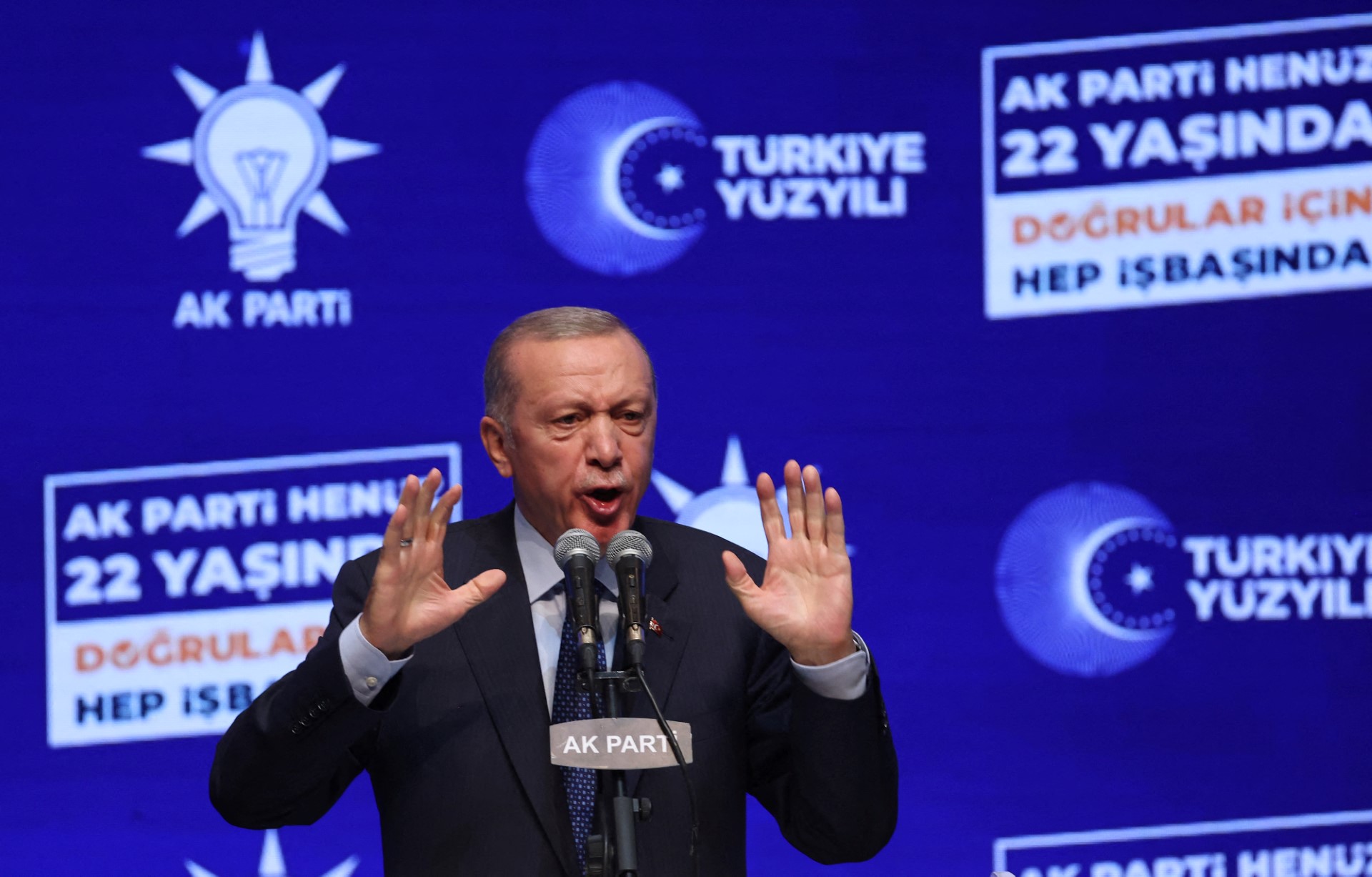Istanbul, Turkey – The European Union’s enlargement commissioner told Turkey on Wednesday to address issues around democracy and the rule of law if it wants to boost its drive to join the bloc.
Ankara secured a pledge from Brussels to resurrect stalled membership negotiations in exchange for lifting its blockade of Sweden’s drive to join the NATO military alliance.
Turkish President Recep Tayyip Erdogan has made mending torn ties with Western allies one of his priorities after winning a difficult election in May.
The EU’s enlargement chief Oliver Varhelyi came to Ankara to try and gauge where the sides could find common ground.
Varhelyi told reporters that he hoped to come up with “something tangible and something positive” for the bloc’s leaders to discuss at a European Council summit in December.
“I think this partnership has huge potential,” he said.
But Varhelyi noted that negotiations were currently at a “standstill” and needed action by Turkey on human rights issues to move on.
“For this to be remobilized, there are very clear criteria set out also by the European Council that would need to be addressed,” Varhelyi said.
“And these criteria are related to democracy and the rule of law and, for example, a credible roadmap for moving forward in these reforms.”
Closer trade hopes
Turkey first applied to be a member of the European Economic Community — a predecessor to the EU — in 1987.
It became an EU candidate country in 1999 and formally launched membership negotiations with the bloc in 2005.
The talks stalled over European concerns about human rights violations that came in the midst of a sweeping crackdown Erdogan launched after surviving a failed 2016 military coup.
But Ankara accuses Brussels of never seriously considering membership for what would be the largest majority-Muslim nation of the 27-nation bloc.
Erdogan has raised the problems Turks have reported getting European tourist visas and accused Brussels of trying to turn Turkey into a “warehouse” for migrants.
Turkey helped stem Europe’s migrant crisis by agreeing to temporarily house millions of Syrians and other people fleeing war zones in exchange for billions of euros in aid in 2016.
Turkish Foreign Minister Hakan Fidan accused Brussels on Wednesday of putting “political” obstacles to the accession talks.
“We expect the EU to demonstrate the will needed to improve relations and to act more bravely,” Fidan said.
EU chief Charles Michel said last month that the bloc should get ready to admit new members from eastern Europe and the Balkans by 2030.
Turkey’s membership is not currently on the agenda of the expansion wave.
But the sides appear to be in agreement on the need to update a customs union that Brussels and Ankara signed in 1996.
The pact gave preferential treatment to Turkey’s agricultural products and also addressed coal and steel.
Ankara wants tariffs lifted on a much wider range of products in order to boost exports and trade.
“We will intensify our efforts to update the Customs Union in order to add a new dimension to our trade with the European Union,” Erdogan said in a major economic policy speech on Wednesday.
Varhelyi said he was “optimistic” about progress on closer trade.







